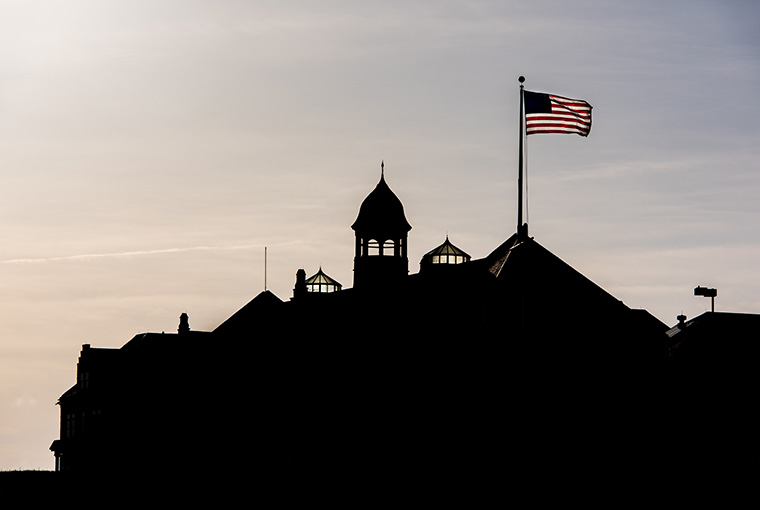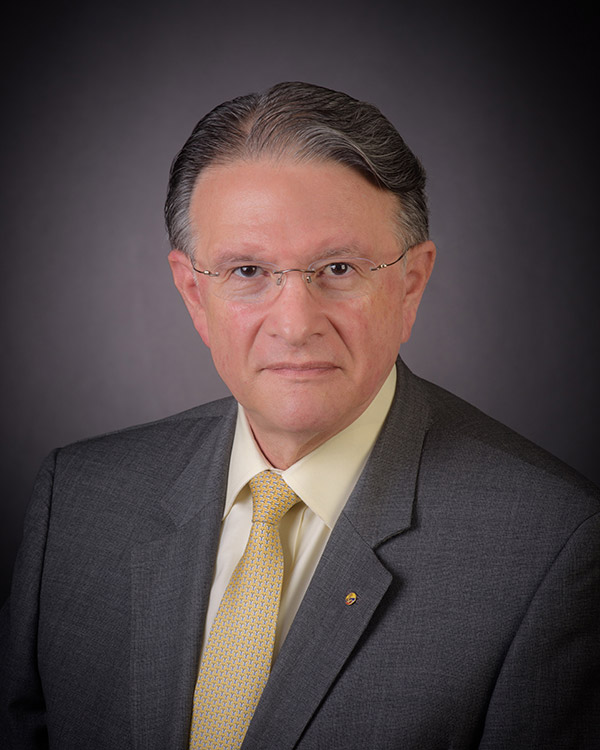Faculty spotlight on professor Guillermo Barrera: On the front line of sweeping change in Colombia


(U.S. Navy photo by Edwin L. Wriston/Released)
Four people on the U.S. Naval War College faculty were once top leaders of foreign navies – the equivalent of the U.S. Navy’s four-star chief of naval operations.
Retired Adm. Guillermo Barrera is one of those. He served as the commander of the Colombian Navy from 2006 to 2010, during part of the height of the fight against narco-terrorism.
He came to the Newport faculty in 2011, the first CNO Distinguished International Fellow at the college under a program championed at the time by then-Chief of Naval Operations Adm. Gary Roughead.
The idea was that these leaders had worked at the highest levels of decision-making in their governments, so they were well-placed to share lessons, Barrera said.
The others are retired Adms. Tomohisa Takei, who was Japan Maritime Self-Defense Force chief of staff from 2014 to 2016; Nirmal Kumar Verma, chief of the Indian Navy from 2009 to 2012; and Lars Saunes, chief of the Royal Norwegian Navy from 2014 to 2017.
They interact with the majority of the academic departments and engage with students in formal and informal conversations.
“We get together very often as friends, and talk about what we do,” Barrera said of the four-person group.
Since 2013, Barrera has held the status of professor and distinguished international fellow.
He often gives lectures on Colombia—particularly the sweeping changes during the administration of then-President Alvaro Uribe from 2002 to 2010. Barrera was chief of operations and then commander of the Colombian Navy during this time.
Uribe is credited with bolstering the rule of law, strengthening the Colombian military and reducing the number of narco-terror fighters who had destabilized Colombia. The U.S.-funded Plan Colombia was an important part of this effort, though the overall strategy was broad, Barrera said.
“Uribe was the leader that created a grand strategy in which the social, economic, political and military instruments of power and influence were fully coordinated to attack the strategy of the narco-terrorist organizations, from a whole-government approach,” he said.
Barrera credits the Uribe administration for moving Colombia from the brink of failure to prosperity.
“Today, all indicators that affect the lives of Colombians have improved enormously, not only in physical security but also security in health and jobs,” he said.
Barrera also teaches elective classes. Past courses have been on political warfare, strategic leadership and U.S.-Latin America relations. Currently, he is working on a paper about counterinsurgency in Colombia.
“I love being here,” Barrera said. “I love being in contact with the students. I support them in any way that I can.”
For a man from the tropics, Barrera is an unlikely transplant to Newport. But it was the first American city that he visited and it clearly made an impression.
It was in the summer of 1972. He was a brand-new ensign in the Colombian Navy, dispatched to Newport as part of the crew to take receipt of a destroyer escort from the United States, the ex-USS Hartley.
“You could see the bay full of ships anchored. I remember because that summer, that was my first contact with this kind of weather. I was coming from Cartagena – 110 degrees, humidity very high. I could see everybody on the beaches here, but we were freezing to death!”
His career went on to include assignments on Colombian patrol boats, frigates, destroyers and destroyer escorts -- including command of the frigate Almirante Padilla in 1994.
He also attended the Colombian War College, the U.S. Naval War College and the Naval Postgraduate School, where he earned an engineering master’s degree in 1983.
